Pet
Can Hamsters Eat Avocado? A Comprehensive Guide
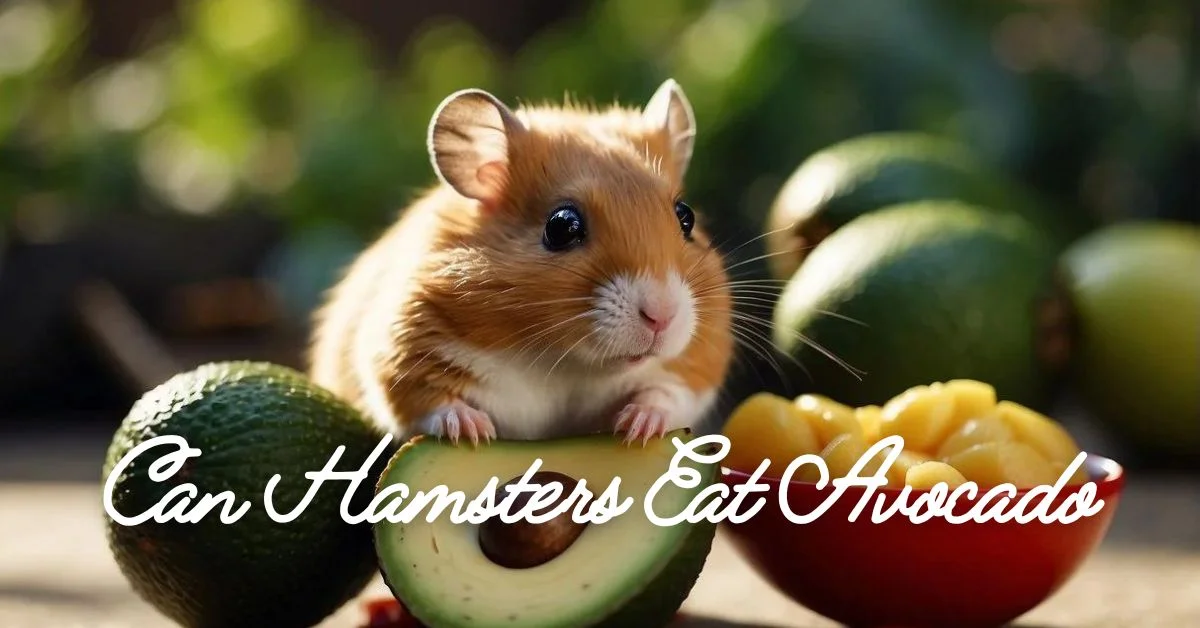
Introduction
Hamsters are adorable, small pets that bring joy to many households. Ensuring they have a healthy diet is essential for their well-being. A common question among hamster owners is: Can hamsters eat avocado? This guide will delve into the details of avocado consumption for hamsters, including its benefits, risks, and safer alternatives. Let’s get started!

Nutritional Profile of Avocado
Avocados are known for their rich nutritional content, making them a popular choice in human diets. They are packed with vitamins, minerals, and healthy fats.
Vitamins and Minerals in Avocado
Avocados contain essential vitamins such as A, C, E, and K. They also provide minerals like potassium, magnesium, and folate. These nutrients are beneficial for humans but can be problematic for hamsters.
Fats and Oils in Avocado
While the fats in avocados are healthy for humans, they are not suitable for hamsters. The high-fat content can lead to obesity and other health issues in these small pets.
Can Hamsters Eat Avocado?
The straightforward answer is no; hamsters should not eat avocado. Although avocados are nutritious for humans, they pose several risks to hamsters.
Toxic Components of Avocado
Avocados contain a substance called persin, which is toxic to many animals, including hamsters. Persin can cause serious health issues, ranging from digestive problems to more severe complications.
Symptoms of Avocado Toxicity in Hamsters
If a hamster ingests avocado, it may exhibit symptoms like diarrhea, vomiting, lethargy, and difficulty breathing. Immediate veterinary attention is crucial if these symptoms occur.
Safe Alternatives to Avocado for Hamsters
Instead of feeding avocados to your hamster, consider safer fruit and vegetable options that provide similar nutritional benefits without the risks.
Fruits Safe for Hamsters
Hamsters can enjoy fruits like apples (without seeds), bananas, strawberries, and blueberries. These fruits are low in fat and provide essential vitamins and minerals.
Vegetables Safe for Hamsters
Vegetables such as carrots, cucumbers, and bell peppers are excellent choices for hamsters. They are nutrient-dense and safe for your furry friend to consume.
How to Introduce New Foods to Hamsters
When introducing new foods to your hamster’s diet, it’s essential to do so gradually and monitor their reaction.
Steps to Safely Introduce New Foods
Start by offering a small piece of the new food and observe your hamster for any adverse reactions. If the hamster tolerates it well, you can slowly increase the portion size.
Monitoring Hamster Reactions
Watch for any signs of discomfort or allergic reactions, such as changes in behavior, appetite, or stool. If any adverse reactions occur, discontinue the new food immediately.
Signs of a Healthy Hamster Diet
A balanced diet is crucial for a hamster’s health. Here are some indicators that your hamster is eating well.
Indicators of a Balanced Diet
A healthy hamster diet includes a mix of commercial hamster pellets, fresh fruits and vegetables, and occasional treats. Your hamster should be active, have a shiny coat, and maintain a stable weight.
Common Dietary Pitfalls to Avoid
Avoid feeding your hamster foods that are high in fat, sugar, or harmful substances. Foods like avocado, chocolate, and sugary treats should be strictly avoided.
What to Do If Your Hamster Eats Avocado
Accidents happen, and if your hamster accidentally eats avocado, it’s essential to act quickly.
Immediate Steps to Take
Remove any remaining avocado pieces from the hamster’s cage and contact your veterinarian immediately. Provide details on the amount consumed and any symptoms your hamster is showing.
When to Contact a Vet
If your hamster shows signs of avocado toxicity, such as lethargy, vomiting, or difficulty breathing, seek veterinary assistance immediately. Early intervention can prevent severe health issues.
Consulting with a Veterinarian
For any concerns regarding your hamster’s diet, always consult with a veterinarian. They can provide tailored advice to ensure your pet’s health and well-being.
Importance of Professional Advice
Veterinarians have the expertise to guide you in creating a balanced and safe diet for your hamster. Regular check-ups ensure your pet remains healthy and happy.
Questions to Ask Your Vet
When visiting your vet, ask about safe foods for hamsters, signs of dietary issues, and emergency protocols if your hamster consumes something harmful.
Conclusion
While avocados are nutritious for humans, they are not safe for hamsters. The risks of feeding avocados to your hamster far outweigh any potential benefits. Instead, opt for safer alternatives like apples, carrots, and other hamster-friendly foods. Always consult with a veterinarian for the best dietary advice and ensure your hamster enjoys a balanced and healthy diet.
FAQs
Can hamsters eat other exotic fruits?
No, many exotic fruits can be harmful to hamsters due to their unique dietary needs. Stick to safe, commonly known fruits like apples and strawberries.
What vegetables are best for hamsters?
Hamsters can safely eat vegetables like carrots, cucumbers, and bell peppers. These provide essential nutrients without the risks associated with more exotic options.
How often should I feed my hamster fresh food?
Fresh fruits and vegetables should be given in moderation, about 2-3 times a week, in small amounts to prevent any digestive issues.
Are there any fruits that are particularly dangerous for hamsters?
Yes, avoid feeding your hamster fruits like citrus, grapes, and avocados as they can be toxic and cause severe health problems.
How can I ensure my hamster’s diet is balanced?
Provide a mix of commercial hamster pellets, fresh fruits and vegetables, and occasional treats. Regularly consult with your vet to adjust the diet as needed.
Pet
Overfed Betta Fish: Causes, Symptoms, and Solutions
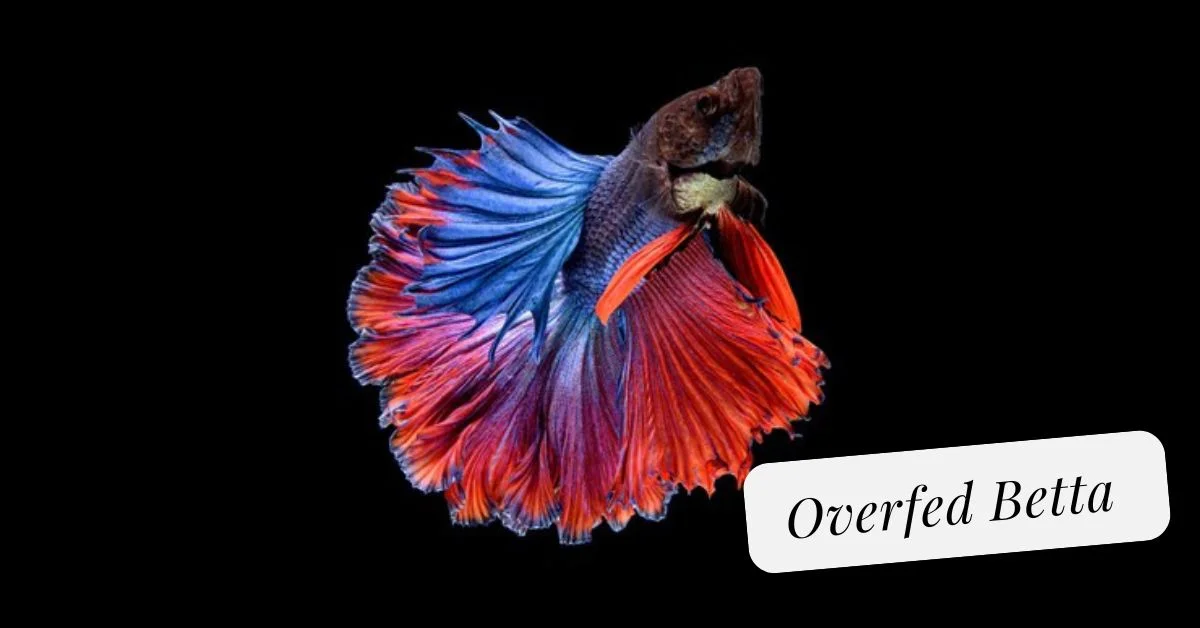
Introduction
Understanding Betta Fish
What are Betta Fish?
Betta fish, also known as Siamese fighting fish, are native to the shallow waters of Southeast Asia. They are known for their vibrant colors and long, flowing fins. In the wild, Bettas have adapted to survive in various conditions, but in captivity, their needs must be met more precisely.
Natural Habitat and Diet
In their natural habitat, Betta fish eat a diet of insects and larvae. This diet is rich in protein and helps them maintain their health. In an aquarium, it’s important to replicate this diet as closely as possible to ensure your Betta remains healthy.
The Risks of Overfeeding
Why Overfeeding is a Concern
Overfeeding can lead to a host of problems for Betta fish. Excess food not only affects their health but also impacts the water quality in their tank. Uneaten food decomposes, leading to increased ammonia levels and potentially harmful conditions for your fish.
Impact on Health and Water Quality
When Betta fish are overfed, it can cause digestive issues and lead to poor water quality. High ammonia levels can result in stress and health problems, making it essential to monitor feeding practices closely.
Causes of Overfeeding
Overzealous Owners
Many Betta owners overfeed their fish out of a desire to ensure they are well-nourished. It’s easy to assume that more food will lead to a healthier fish, but this is a common misconception.
Misunderstanding of Feeding Needs
Another cause of overfeeding is a misunderstanding of how much food Betta fish actually need. Bettas have small stomachs and require only a small amount of food each day.
Incorrect Portion Sizes
Using the wrong portion sizes is a significant factor in overfeeding. Too much food at one time can overwhelm the fish’s digestive system and lead to health issues.
Symptoms of Overfed Betta Fish
Behavioral Changes
Overfed Bettas may exhibit changes in behavior such as lethargy or a decrease in activity levels. They might also become less responsive during feeding times.
Physical Signs
Physically, an overfed Betta might appear bloated or have a distended abdomen. These signs indicate that the fish’s digestive system is struggling to cope with the excess food.
Water Quality Indicators
Poor water quality can also signal overfeeding. If you notice an increase in algae growth or a strong odor coming from the tank, it might be due to decomposing food.
Impact on Health
Digestive Issues
Overfeeding can cause digestive problems such as constipation or swim bladder issues. These conditions can lead to more severe health problems if not addressed promptly.
Obesity and Related Diseases
Just like in other animals, obesity in Betta fish can lead to a range of health issues, including a weakened immune system and reduced lifespan.
Stress and Lethargy
Excess food can stress your Betta, leading to a decrease in energy levels and overall well-being. Stress can also make your Betta more susceptible to diseases.
Diagnosing Overfeeding Issues
How to Assess if Your Betta is Overfed
To determine if your Betta is overfed, look for signs of bloating and monitor their activity levels. Regularly check the tank for uneaten food and assess the water quality.
Tools and Techniques for Monitoring
Using a fish tank test kit can help you keep track of water quality. Additionally, maintaining a feeding log can help you monitor how much and how often you feed your Betta.
Preventing Overfeeding
Proper Feeding Guidelines
Feed your Betta a small amount of high-quality food once or twice a day. It’s essential to provide just enough for them to consume within a few minutes to avoid leftovers.
Establishing a Feeding Schedule
Create a consistent feeding schedule and stick to it. This will help regulate your Betta’s food intake and prevent overfeeding.
Measuring Food Portions
Use a measuring spoon to ensure you’re providing the correct amount of food. This can help you avoid the temptation to overfeed and ensure your Betta receives the right nutrition.
Solutions for Overfed Betta Fish
Adjusting Feeding Habits
If you suspect your Betta is overfed, adjust the amount and frequency of food. Gradually reduce the amount of food you offer until you find the right balance.
Water Changes and Tank Maintenance
Perform regular water changes to maintain a healthy environment for your Betta. Cleaning the tank and removing uneaten food can help improve water quality.
Veterinary Intervention if Needed
If your Betta shows signs of persistent health issues despite changes in feeding habits, consult a veterinarian specializing in fish care.
Long-Term Care for Betta Fish
Maintaining a Healthy Diet
Continue to provide a balanced diet and monitor your Betta’s health regularly. A healthy diet is crucial for their long-term well-being.
Regular Health Check-Ups
Schedule regular check-ups to ensure your Betta remains in good health. This can help catch any issues early and maintain optimal conditions for your fish.
Environmental Enrichment
Provide environmental enrichment such as plants and hiding spots to keep your Betta active and engaged. A stimulating environment contributes to overall health and happiness.
Common Mistakes to Avoid
Misinterpreting Betta Behavior
Avoid misinterpreting changes in behavior as a sign of hunger. Monitor feeding closely and adjust based on actual needs rather than perceived hunger.
Ignoring Water Quality
Don’t overlook the importance of maintaining water quality. Regular testing and maintenance are essential for a healthy tank environment.
Not Monitoring Food Intake
Ensure you keep track of how much and how often you feed your Betta. Overfeeding can be a gradual issue, so consistent monitoring is key.
Benefits of Proper Feeding
Improved Health and Longevity
Proper feeding practices contribute to a healthier and longer life for your Betta. A balanced diet helps prevent diseases and supports overall well-being.
Enhanced Behavior and Activity
Betta fish that are fed appropriately are more active and exhibit better behavior. They are more likely to thrive and show their vibrant colors.
Better Water Quality
Feeding the right amount reduces waste and helps maintain better water quality, creating a healthier environment for your Betta and other tank inhabitants.
Conclusion
In conclusion, overfeeding is a common issue among Betta fish owners that can lead to serious health problems and poor water quality. By understanding the causes and symptoms of overfeeding, you can take steps to prevent and address this issue effectively. Proper feeding practices, regular tank maintenance, and monitoring are crucial for ensuring your Betta remains healthy and vibrant.
FAQs
What is the best feeding schedule for Betta fish?
The best feeding schedule for Betta fish is once or twice a day. Provide only a small amount of food that your Betta can consume within a few minutes.
How can I tell if my Betta is overweight?
Signs of an overweight Betta include a bloated abdomen and decreased activity levels. Monitoring their feeding and behavior can help you identify weight issues.
What should I do if my Betta refuses to eat?
If your Betta refuses to eat, check for changes in water quality or health issues. Ensure the food is fresh and appropriate for their diet.
How often should I clean my Betta’s tank?
Clean your Betta’s tank regularly, typically once a week. Perform partial water changes and remove uneaten food to maintain a healthy environment.
Can overfeeding affect the tank’s other inhabitants?
Yes, overfeeding can lead to poor water quality, which can negatively impact other tank inhabitants. Maintaining good feeding practices benefits all the fish in the tank.
Pet
Outdoor Pets: Fun and Friendly Animals to Keep Outside
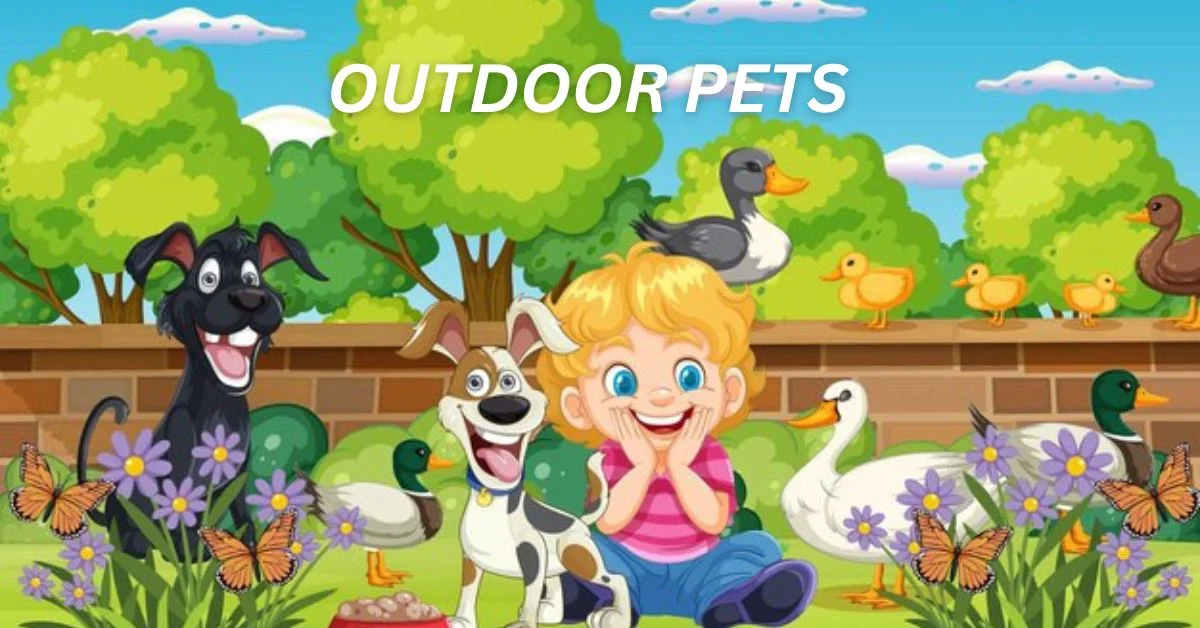
Introduction
Keeping pets is a wonderful experience for kids and adults alike. However, not everyone has the permission or space to keep pets indoors. This is where outdoor pets come in handy. They provide the same companionship and joy while thriving in an outdoor environment. Let’s explore the best outdoor pets and how to care for them.
Factors to Consider When Choosing Outdoor Pets
Climate and Environment
The climate and environment where you live play a significant role in determining which pets are suitable for outdoor living. Some animals thrive in warm climates, while others prefer cooler temperatures.
Space Requirements
Different pets have varying space needs. While some animals, like rabbits and guinea pigs, require relatively small enclosures, others, like goats and dogs, need more extensive spaces to roam and play.
Maintenance and Care
Consider the amount of time and effort you can dedicate to maintaining your pet’s living environment. Some outdoor pets require more frequent cleaning and care than others.
Safety Concerns
Ensuring the safety of your outdoor pets from predators and harsh weather conditions is crucial. Proper enclosures and shelters are necessary to keep them safe and healthy.
Top 10 Best Outdoor Pets for Kids
1. Rabbits
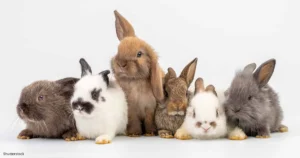
Habitat and Housing: Rabbits need a secure hutch with enough space to move around. The hutch should be well-ventilated and protected from predators and extreme weather.
Feeding and Care: They thrive on a diet of hay, fresh vegetables, and rabbit pellets. Regular cleaning of their living space is essential to prevent diseases.
2. Chickens
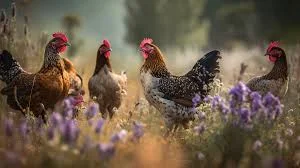
Coop Requirements: Chickens require a coop that provides shelter from the elements and protection from predators. The coop should have nesting boxes for egg-laying.
Egg Production and Benefits: Chickens are not only fun to watch but also provide fresh eggs. They help teach kids responsibility and the basics of animal care.
3. Ducks
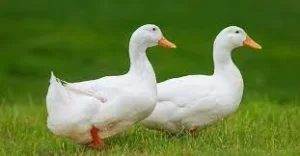
Pond or Water Source: Ducks need access to a water source, such as a pond or a small pool, to swim and clean themselves.
Social Nature and Care: Ducks are social animals that enjoy the company of other ducks. They need a balanced diet of grains, vegetables, and commercial duck feed.
4. Guinea Pigs

Outdoor Housing: Guinea pigs can live outdoors in a secure, weather-proof enclosure with ample space for exercise.
Social Interaction: They are social creatures and do well in pairs or small groups. Guinea pigs require fresh hay, vegetables, and guinea pig pellets.
5. Tortoises
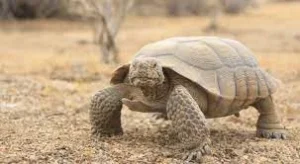
Enclosure and Diet: Tortoises need a spacious outdoor enclosure with access to sunlight and shade. Their diet includes leafy greens, vegetables, and occasional fruits.
Lifespan and Commitment: Tortoises have long lifespans, often exceeding 50 years, making them a long-term commitment.
6. Goats
Space and Shelter Needs: Goats require a large, secure area to roam and graze. They also need a sturdy shelter to protect them from the elements.
Playful Nature: Goats are playful and curious animals that can provide endless entertainment. They require a diet of hay, grains, and fresh vegetables.
7. Pigeons
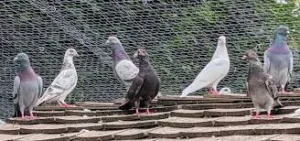
Loft Setup: Pigeons need a loft or aviary to live in. The space should be safe from predators and have perches for the pigeons to rest.
Feeding and Breeding: They eat grains and seeds. Pigeons are also known for their breeding habits and can be a fascinating pet for kids to observe.
8. Fish (Pond)

Pond Setup and Maintenance: A garden pond can house various fish species like koi or goldfish. The pond needs regular maintenance to keep the water clean and oxygenated.
Suitable Fish Species: Choose fish that are hardy and can adapt to outdoor pond conditions. Koi and goldfish are popular choices.
9. Dogs

Suitable Breeds for Outdoor Living: Some dog breeds are better suited for outdoor living, such as Labrador Retrievers, Siberian Huskies, and German Shepherds.
Training and Exercise: Outdoor dogs need regular exercise and training to stay healthy and happy. Ensure they have a safe, fenced area to roam.
10. Cats

Safe Outdoor Environment: Cats can enjoy the outdoors if provided with a safe environment. Consider building a catio or a secure outdoor enclosure.
Health and Safety: Regular vet check-ups and vaccinations are essential to keep outdoor cats healthy. Provide them with fresh water, food, and shelter.
Special Considerations for Outdoor Pets
Predators and Protection
Ensure that your outdoor pets are protected from predators such as foxes, hawks, and neighborhood dogs. Secure enclosures and shelters are vital.
Seasonal Changes and Adaptation
Outdoor pets need to adapt to seasonal changes. Provide appropriate shelter and heating in winter and shade and water in summer.
Health and Veterinary Care
Regular health check-ups and vaccinations are crucial for outdoor pets. Monitor them for any signs of illness or distress.
Conclusion
Outdoor pets offer numerous benefits, from teaching kids responsibility to providing companionship and entertainment. By choosing the right pet and providing proper care, you can ensure a happy and healthy environment for your outdoor animals. Whether you opt for a playful goat or a serene tortoise, outdoor pets can enrich your family’s life in countless ways.
FAQs
What are the best low-maintenance outdoor pets?
Rabbits, guinea pigs, and tortoises are relatively low-maintenance outdoor pets that are easy to care for.
How can I protect my outdoor pets from predators?
Use secure enclosures and provide shelters that protect your pets from predators like foxes and hawks. Regularly inspect the enclosures for any vulnerabilities.
What should I consider when setting up an outdoor pet enclosure?
Consider the space requirements, protection from predators, and shelter from weather conditions. Ensure the enclosure is safe, secure, and appropriate for the pet’s needs.
Can outdoor pets live outside all year round?
Many outdoor pets can live outside year-round with proper shelter and care. However, extreme weather conditions may require additional precautions to ensure their safety and comfort.
How do I ensure my outdoor pet stays healthy?
Regular vet check-ups, a balanced diet, clean water, and a safe living environment are essential for maintaining the health of your outdoor pet.
Pet
Meet the Adorable Black Maine Coon Kitten: A Complete Guide
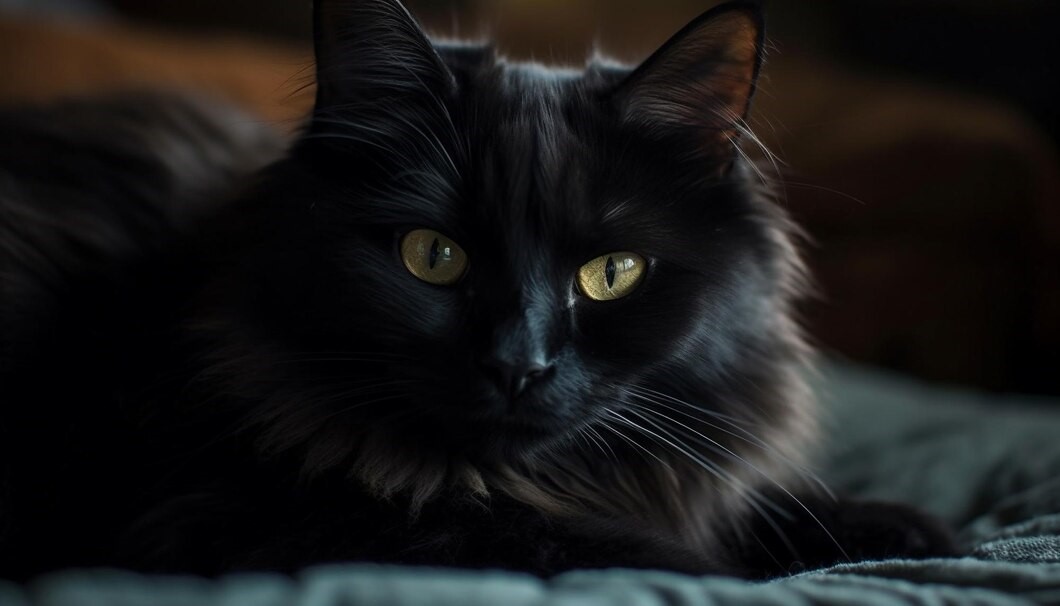
Welcome to the enchanting world of Black Maine Coon kittens! These majestic felines are a sight to behold with their luxurious fur and captivating presence. If you’re considering adding a furry companion to your family, the Black Maine Coon kitten might just steal your heart. Join us as we delve into everything you need to know about these adorable creatures – from their unique characteristics to their fascinating history and myths. Let’s embark on this delightful journey together!
Characteristics of Black Maine Coon Kittens
Black Maine Coon kittens are known for their striking appearance and majestic presence. They have large, expressive eyes that are usually gold or copper in color, adding to their charm. Their ears are tufted at the tips, giving them a regal look that sets them apart from other breeds.
One of the most notable characteristics of Black Maine Coons is their impressive size. These kitties can grow up to be quite large and muscular, making them an imposing yet lovable addition to any family. Despite their size, they are incredibly gentle and affectionate creatures who enjoy cuddling up with their humans.
Their luxurious coat is another standout feature – thick and soft fur that comes in various shades of black. This coat requires regular grooming to keep it looking its best but contributes to the cat’s overall elegant appearance.
In addition to their physical features, Black Maine Coon kittens are intelligent and playful animals. They love interactive toys and games that challenge their minds while keeping them entertained for hours on end.
History and Popularity of Black Maine Coons
The history of Black Maine Coon cats is shrouded in mystery and intrigue. These majestic felines have been captivating people for centuries with their striking appearance and charming personalities. As one of the oldest natural breeds in North America, the Maine Coon has a rich heritage that dates back to the early days of colonial America.
Over time, these black beauties have gained immense popularity among cat lovers worldwide. Their large size, tufted ears, bushy tails, and friendly demeanor make them irresistible companions for many households. The allure of a Black Maine Coon kitten lies not only in its stunning coat but also in its playful nature and affectionate temperament.
Despite their widespread appeal, there are still many myths surrounding Black Maine Coons that often overshadow the true facts about these lovable creatures. By delving into their history and understanding their rise to fame, we can appreciate these remarkable cats even more.
Myths and Facts about Black Maine Coons
There are many myths surrounding Black Maine Coon kittens that often lead to misconceptions about this beautiful breed. One common myth is that black Maine Coons are aggressive due to their size, but in reality, they are known for their gentle and friendly nature. Another misconception is that they require a lot of grooming because of their long fur, when in fact regular brushing can keep their coat looking sleek and healthy.
Some people believe that Black Maine Coons shed more than other cats, but the truth is that shedding varies from cat to cat regardless of color. Additionally, there’s a myth that these kittens are not suitable for families with children or other pets; however, Black Maine Coons are typically sociable and get along well with others.
It’s important to separate fact from fiction when considering adding a Black Maine Coon kitten to your family. These cats have unique characteristics and personalities just like any other breed.
Choosing a Black Maine Coon as a Pet
When choosing a Black Maine Coon as a pet, consider their playful and affectionate nature. These majestic kittens are known for their intelligence and social demeanor, making them great companions for families or individuals seeking a loving feline friend.
Their stunning black coat adds an air of mystery and elegance to their already impressive appearance. Regular grooming is essential to maintain the beauty of their fur and keep it healthy.
Black Maine Coons are generally friendly towards other pets and children, but early socialization is key to ensure they adapt well to different environments. Their curious nature means they enjoy exploring new spaces and playing with interactive toys.
These cats thrive on human interaction, so be prepared to shower them with love and attention. With proper care, training, and enrichment activities, owning a Black Maine Coon can bring immense joy and fulfillment into your life.
Conclusion
So, after diving into the world of Black Maine Coon kittens and exploring their unique characteristics, history, myths, and facts, it’s clear that these felines are truly fascinating creatures. From their striking appearance to their playful personalities, there’s no denying the charm of a Black Maine Coon kitten.
If you’re considering adding one of these majestic kitties to your family, be sure to do your research and choose a reputable breeder. Remember that owning any pet is a long-term commitment that requires love, care, and attention.
Whether you’re drawn to the mysterious allure of black cats or simply captivated by the beauty of Maine Coons in general, a Black Maine Coon kitten could be the perfect addition to your home. Just imagine all the joy and laughter they’ll bring into your life with their antics and affection.
FAQs
Are Black Maine Coon kittens hypoallergenic?
While no cat breed is completely hypoallergenic, some people with allergies may find that they react less to Maine Coons due to their low dander levels.
How big do Black Maine Coon kittens grow?
Black Maine Coons are known for their large size. On average, males can weigh between 13-18 pounds, while females typically range from 8-12 pounds.
Do Black Maine Coon kittens require special grooming?
Due to their long fur, Black Maine Coons may need regular grooming to prevent matting and hairballs. Brushing a few times a week should suffice.
-

 Fashion2 years ago
Fashion2 years agoExploring Purenudism: Embracing Body Positivity and Freedom
-

 Shops1 year ago
Shops1 year agoStaples Store Hours: What Time Does Staples Open And Close?
-

 Shops2 years ago
Shops2 years agoWalmart Vision Center Hours
-

 Shops1 year ago
Shops1 year agoWalgreen Pharmacy Hours: What Time Does It Open & Close?
-

 Shops1 year ago
Shops1 year agoPublix Pharmacy Hours and Locations
-

 Entertainment2 years ago
Entertainment2 years agoThothub.lol: The Digital Realm of Entertainment
-

 Business2 years ago
Business2 years agoDesigner Clothing: Making a Statement
-

 Shops1 year ago
Shops1 year agoWalmart Deli Open & Close Hours

